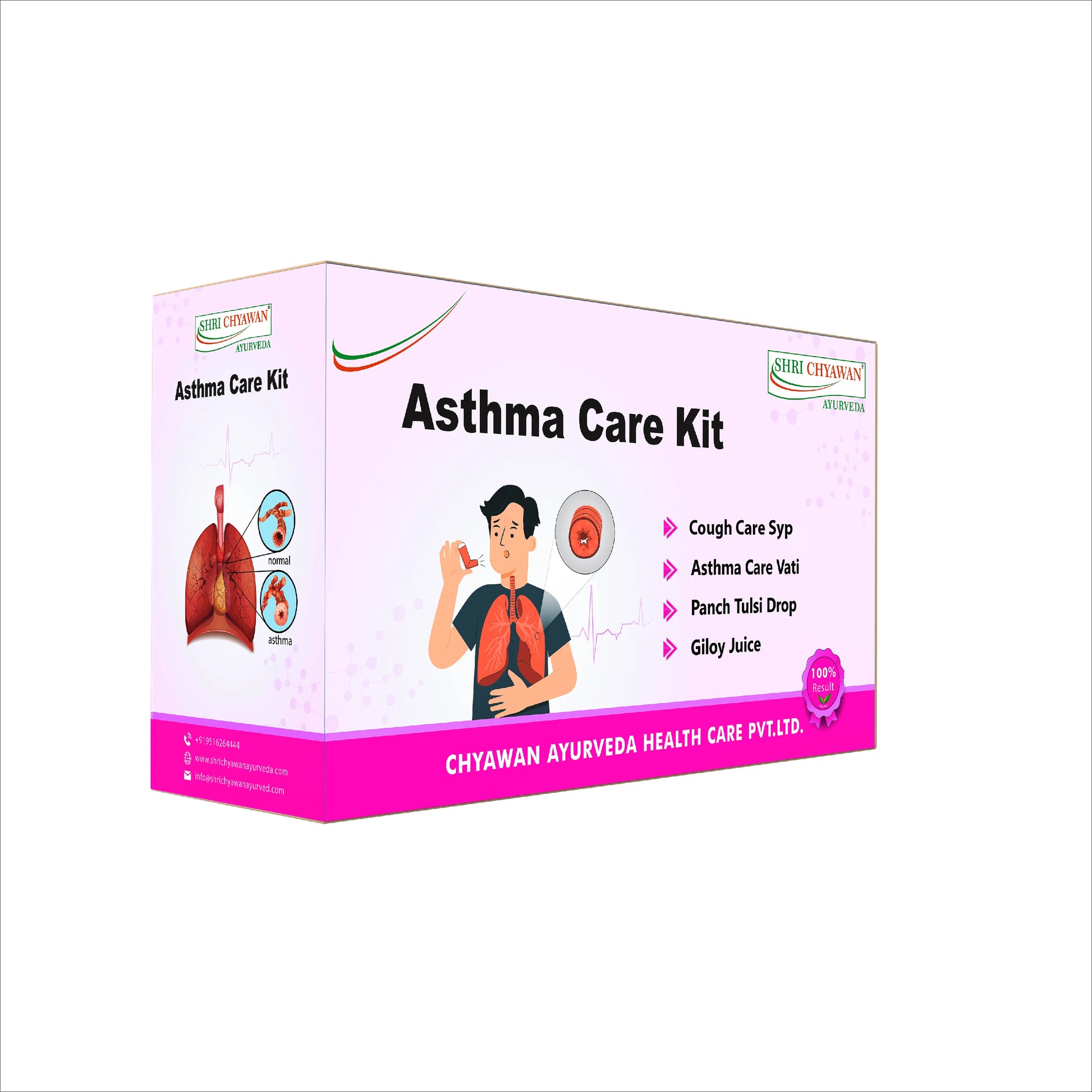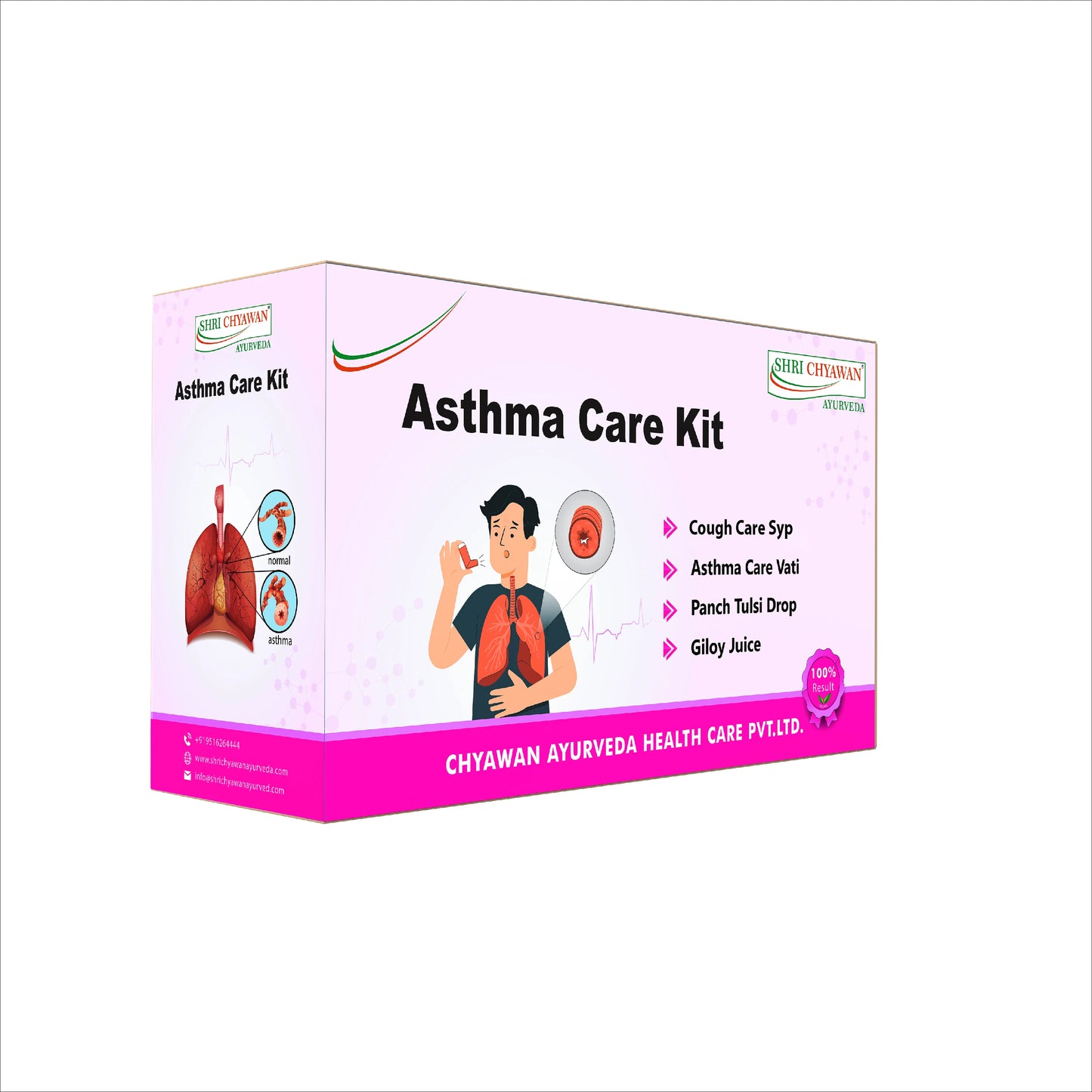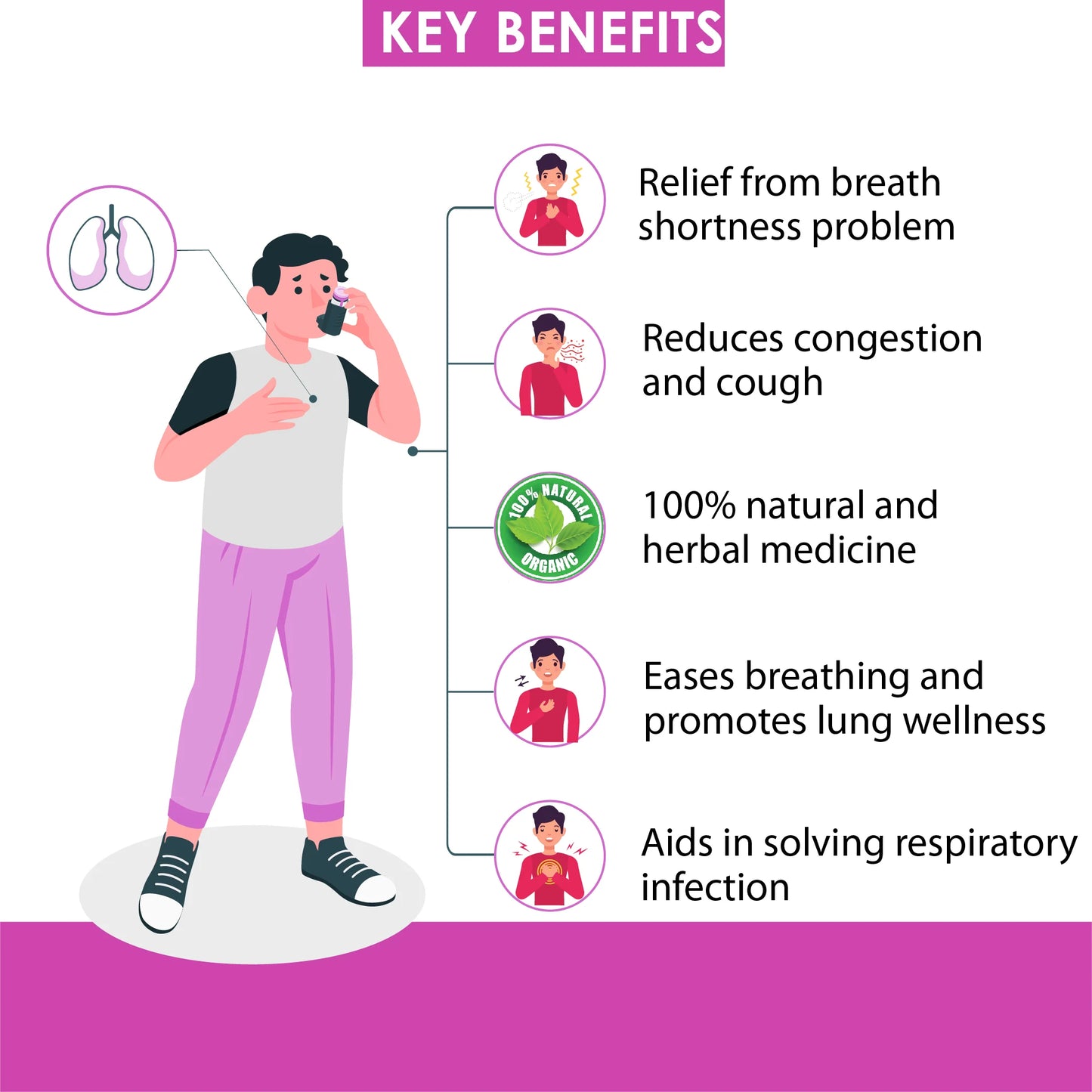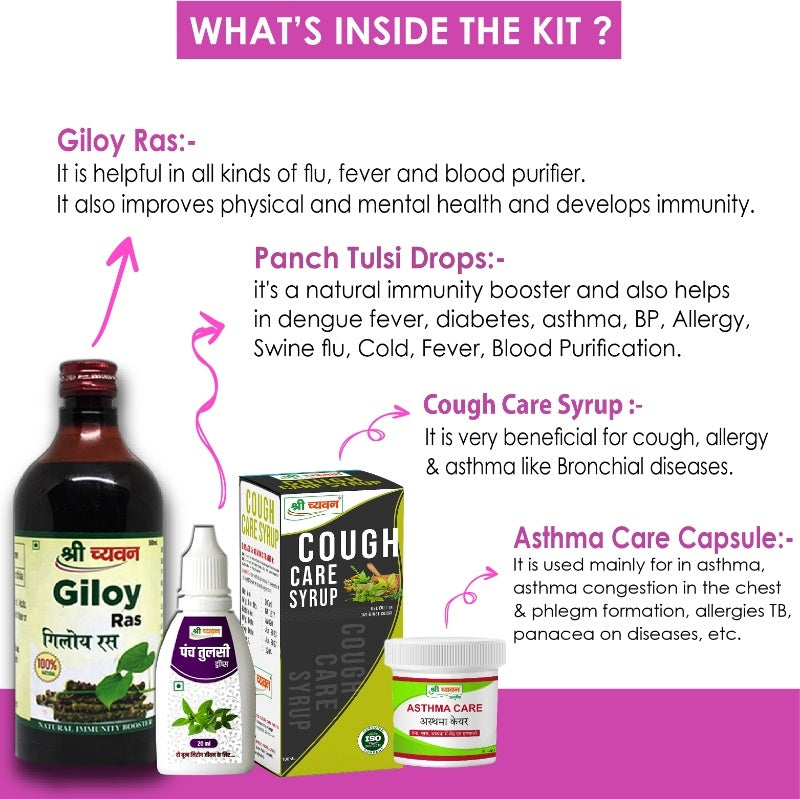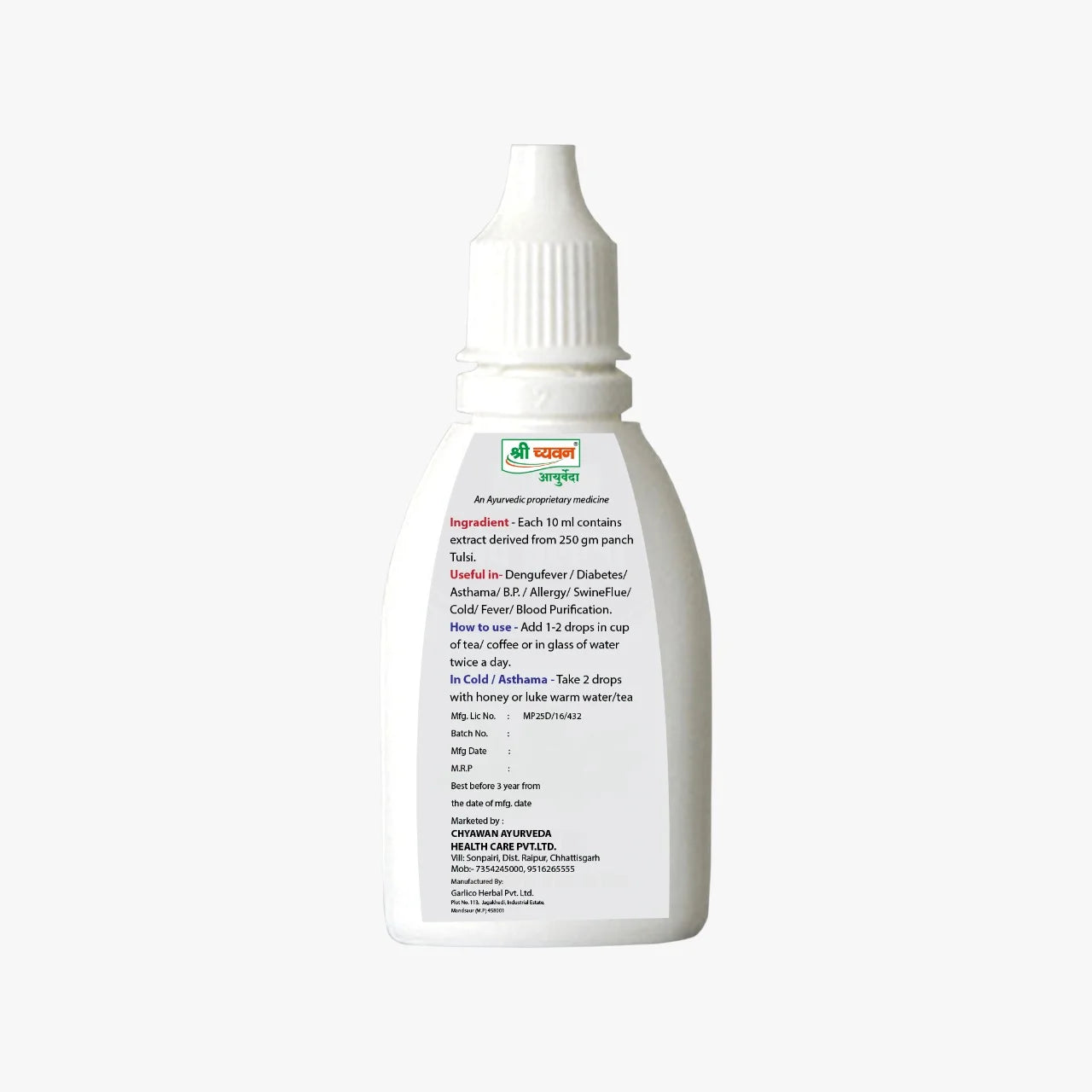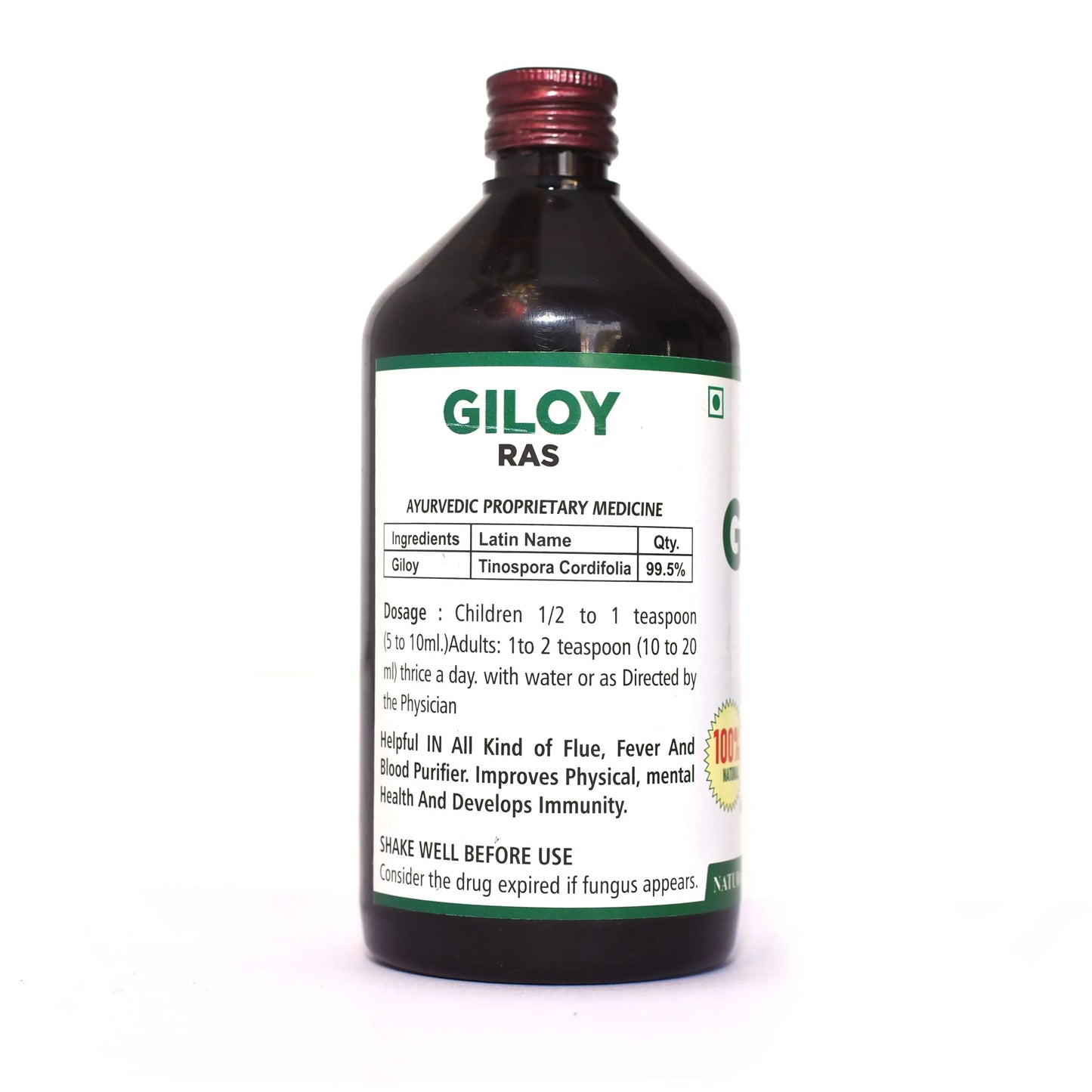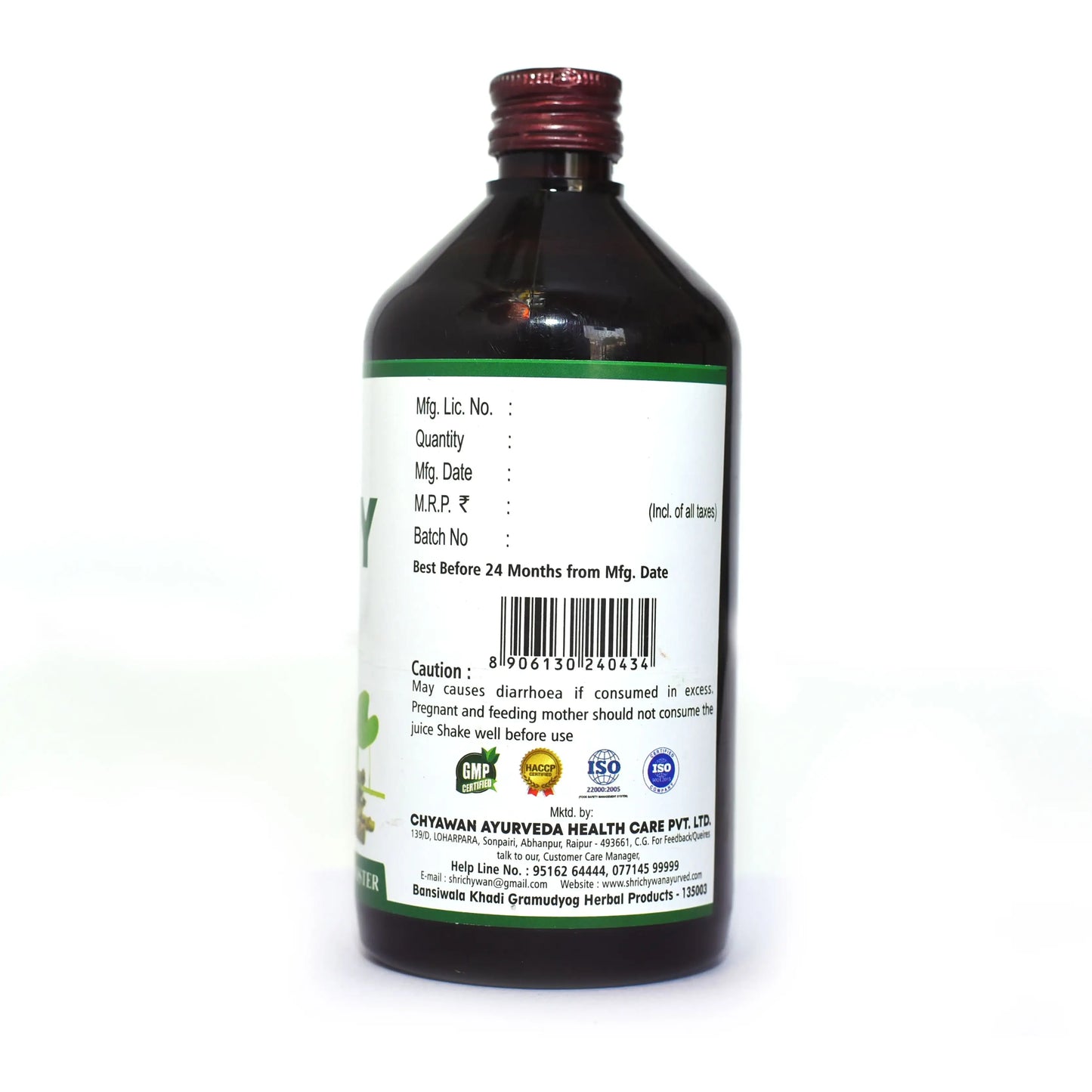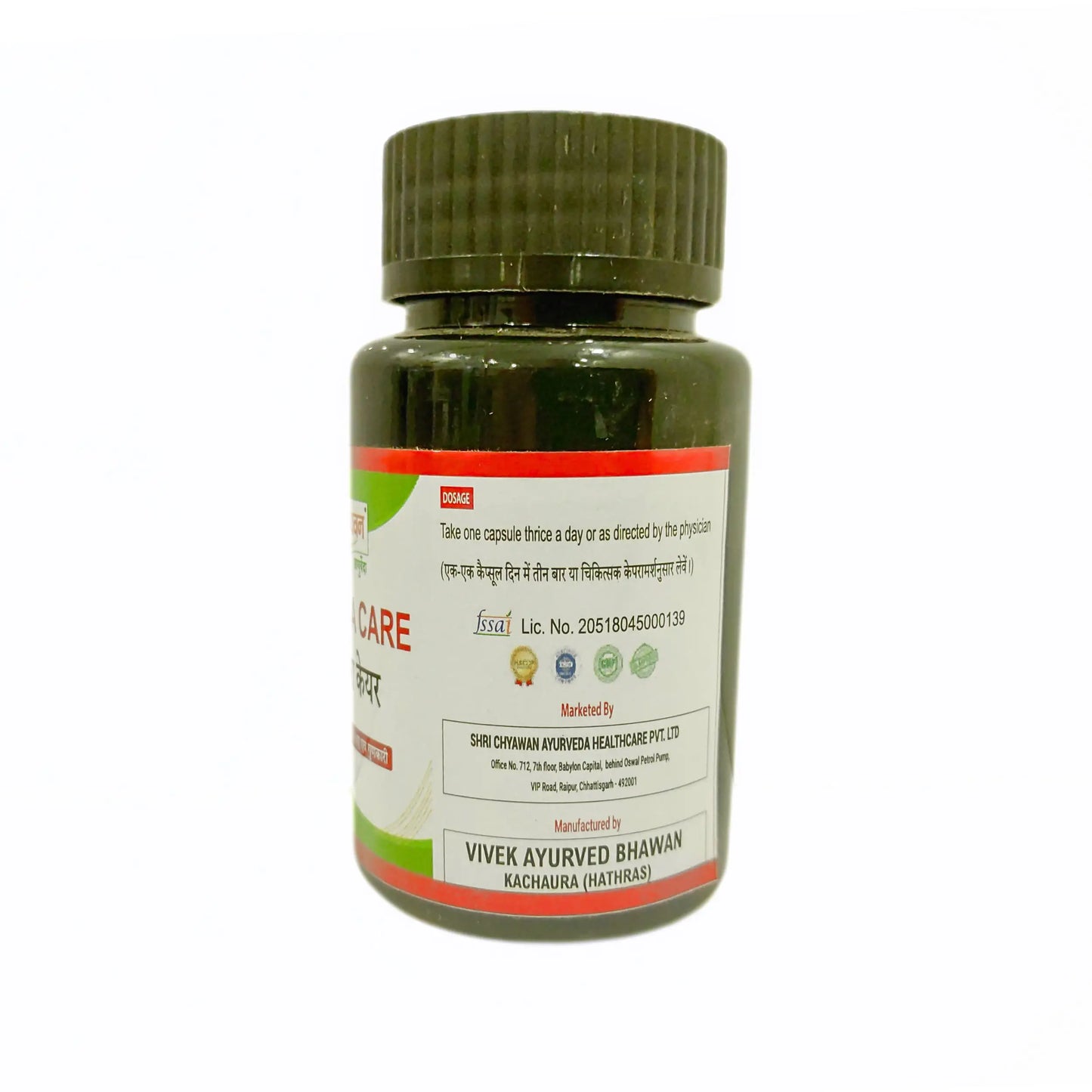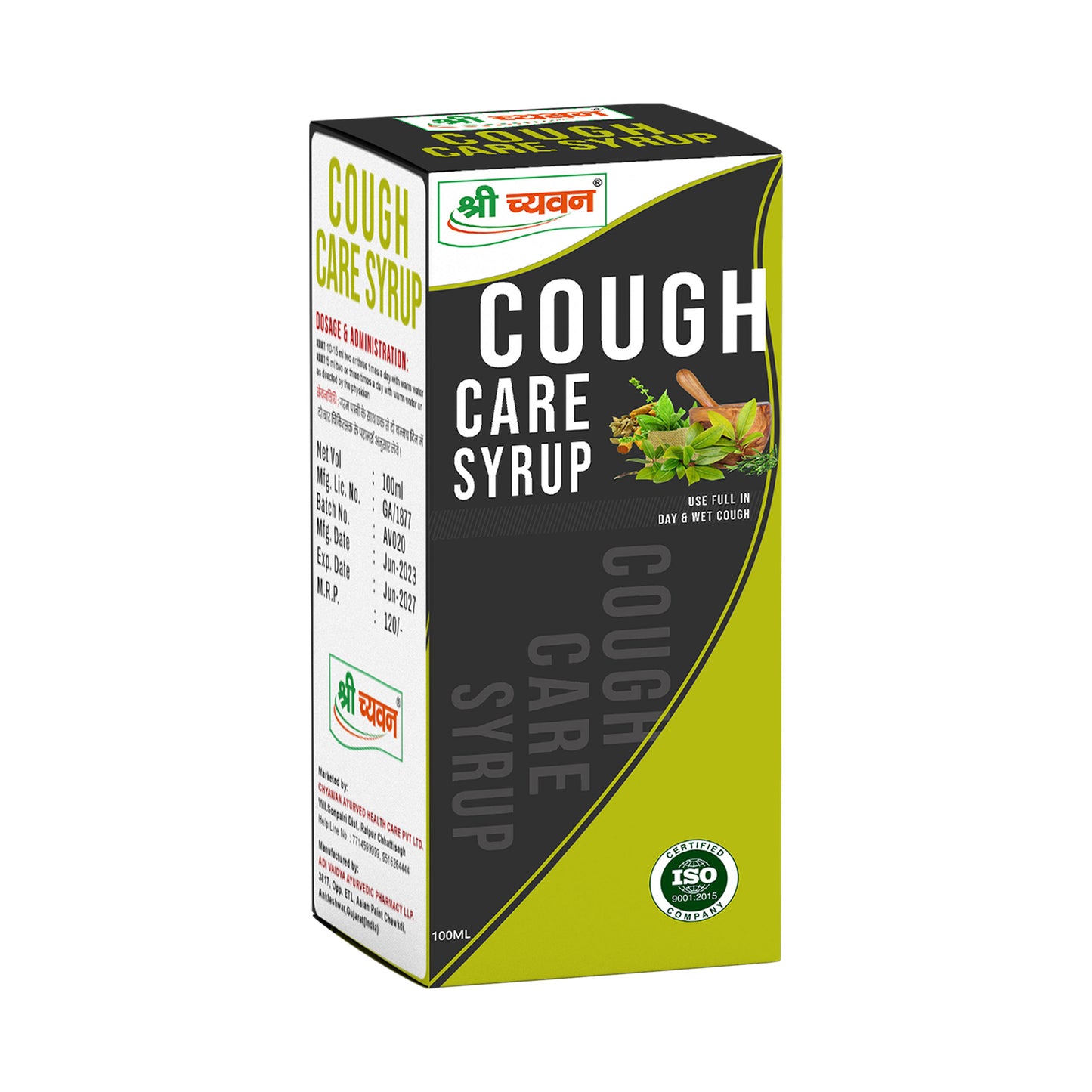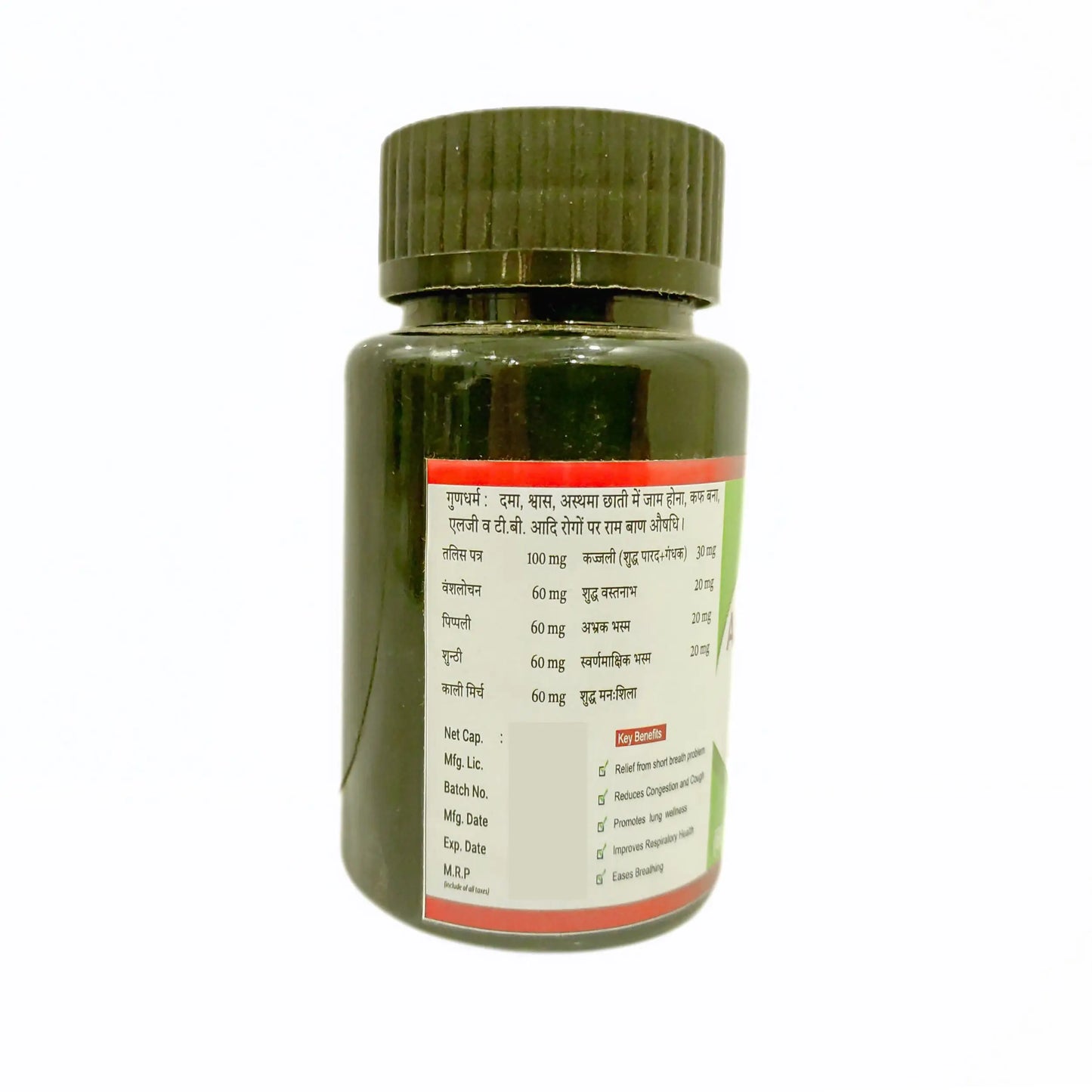Asthma is a chronic respiratory condition that affects millions of people worldwide, and its symptoms can be exacerbated by seasonal changes. Each season brings its own set of triggers, making it crucial for asthma sufferers to be well-prepared and proactive in managing their condition year-round. One effective solution that has garnered the recommendation of thousands of BAMS (Bachelor of Ayurvedic Medicine and Surgery) doctors is the Asthma Care Kit by Shri Chyawan Ayurveda. This Ayurvedic medicine offers a natural and holistic approach to managing asthma symptoms.
Understanding Seasonal Asthma
Seasonal asthma is characterized by the worsening of asthma symptoms during certain times of the year. Common triggers vary by season and include:
- Spring: Pollen from trees, grass, and flowers
- Summer: High humidity, increased pollen, and pollution
- Autumn: Mold spores and decaying leaves
- Winter: Cold air, respiratory infections, and indoor allergens like dust mites
Preparing for Each Season
Spring
Triggers: Pollen is the primary trigger during spring. The pollen count typically peaks during this season, causing widespread discomfort for asthma sufferers.
Preparation Tips:
- Monitor Pollen Levels: Check daily pollen counts and stay indoors when levels are high.
- Use Air Purifiers: Keep indoor air clean by using HEPA air purifiers.
- Keep Windows Closed: Prevent pollen from entering your home by keeping windows shut, especially on high-pollen days.
- Shower and Change Clothes: After spending time outdoors, shower and change clothes to remove pollen.
Summer
Triggers: High humidity and pollution levels can exacerbate asthma symptoms. Increased outdoor activities can also lead to more exposure to allergens.
Preparation Tips:
- Stay Hydrated: Drink plenty of water to keep your airways moist.
- Use Dehumidifiers: Reduce indoor humidity levels with dehumidifiers.
- Avoid Outdoor Activities During Peak Hours: Limit outdoor activities during the hottest parts of the day.
- Wear a Mask: Use a mask when pollen or pollution levels are high.
Autumn
Triggers: Mold spores from fallen leaves and damp conditions can trigger asthma.
Preparation Tips:
- Clean Up Leaves: Regularly rake and dispose of fallen leaves to prevent mold growth.
- Check for Indoor Mold: Ensure your home is free from mold, especially in damp areas like bathrooms and basements.
- Use a Humidifier: Keep indoor air from becoming too dry with a humidifier.
Winter
Triggers: Cold air and indoor allergens like dust mites are common triggers in winter. Respiratory infections also increase during this season.
Preparation Tips:
- Cover Your Face: Wear a scarf or mask over your nose and mouth when outside in cold weather.
- Maintain Indoor Humidity: Use a humidifier to keep indoor air moist.
- Clean Regularly: Reduce indoor allergens by cleaning and vacuuming regularly.
- Get Vaccinated: Stay up-to-date with flu and pneumonia vaccinations to prevent respiratory infections.
Managing Asthma Year-Round with Shri Chyawan Ayurveda’s Asthma Care Kit
The Asthma Care Kit by Shri Chyawan Ayurveda is a highly recommended Ayurvedic solution for managing asthma. Thousands of BAMS doctors advocate for this kit due to its natural and effective approach to asthma care. The kit includes a range of Ayurvedic medicines and remedies designed to:
1. Relief from Shortness of Breath
One of the most distressing symptoms of asthma is shortness of breath. The Asthma Care Kit contains herbal formulations that help to open up the airways, making it easier to breathe and reducing the frequency and severity of breathlessness episodes.
2. Supports Clear Breathing
Clear breathing is essential for overall well-being. The natural ingredients in the Asthma Care Kit support the respiratory system by reducing mucus build-up and inflammation, thus promoting unobstructed and easier breathing.
3. Promotes Lung Wellness
Lung health is crucial for those with asthma. The herbs included in the Asthma Care Kit are known to enhance lung function and health, helping to improve oxygen exchange and lung capacity, which are often compromised in asthma patients.
4. Aids in Respiratory Infections
Asthma sufferers are more susceptible to respiratory infections, which can trigger or worsen asthma symptoms. The Asthma Care Kit contains immune-boosting ingredients that help to protect against infections and support quicker recovery if they do occur.
5. Eases Breathing
Easing the overall breathing process is a primary goal of the Asthma Care Kit. The Ayurvedic formulations work synergistically to relax the bronchial muscles, reduce airway resistance, and facilitate smoother, more comfortable breathing.
6. Improves Respiratory Health
Overall respiratory health is improved with regular use of the Asthma Care Kit. The combination of herbs works to strengthen the respiratory system, enhance lung function, and maintain the health of the entire respiratory tract.
7. Treats Asthma
The holistic approach of Ayurveda not only addresses the symptoms but also aims to treat the root causes of asthma. The Asthma Care Kit is formulated to reduce the frequency and severity of asthma attacks, providing a long-term solution for asthma management.
8. Supports Healthy Functioning
General health and vitality are also supported by the Asthma Care Kit. By improving lung function and respiratory health, users often experience an overall boost in their physical endurance and energy levels, leading to a more active and fulfilling life.
This kit includes a combination of Ayurvedic remedies designed to provide holistic care for asthma patients. Here’s an in-depth look at the components of the Asthma Care Kit and how to use them:

1. Asthma Care Capsule
Benefits:
- Primarily used for asthma, asthma congestion in the chest, and phlegm formation.
- Helps in managing allergies and conditions like tuberculosis (TB).
- Acts as a panacea for various respiratory diseases.
Ingredients:
- Shudh Vatsnabh: Known for its anti-inflammatory and analgesic properties.
- Talispatra: Helps in clearing respiratory passages.
- Vanshlochan: Soothes and protects the respiratory tract.
- Sunthi (Ginger): Reduces inflammation and has expectorant properties.
- Kajjli: Traditionally used in Ayurvedic medicine to balance doshas and support respiratory health.
How to Use:
- Consume 1 capsule three times a day.
2. Asthma Care Syrup
Benefits:
- Highly beneficial in relieving cough, allergies, and bronchial asthma.
- Helps in managing bronchial diseases effectively.
Ingredients:
- Amba Haldi (Turmeric): Known for its anti-inflammatory and antioxidant properties.
- Black Pepper: Enhances bioavailability of other herbs and supports respiratory health.
- Sunth (Dry Ginger): Provides relief from congestion and cough.
- Choti Pipal: Has expectorant properties that help clear mucus.
- Adusi (Malabar Nut): Used traditionally to treat asthma and bronchitis.
- Choti Kateri: Helps in relieving respiratory discomfort.
- Kulinjan: Supports respiratory health and eases breathing.
How to Use:
- Take one teaspoon full, four times a day with warm water.
3. Giloy Ras
Benefits:
- Effective in managing various types of flu and fever.
- Acts as a blood purifier and boosts overall immunity.
- Improves physical and mental health.
Ingredients:
- Giloy Ras: A powerful herb known for its immunomodulatory and anti-inflammatory properties.
How to Use:
- For children: Half to 1 teaspoon (5 to 10ml) thrice a day.
- For adults: 1 to 2 teaspoons (10 to 20ml) thrice a day.
4. Panch Tulsi Drops
Benefits:
- Natural immunity booster that helps in managing conditions like dengue fever, diabetes, asthma, blood pressure, allergies, swine flu, cold, and fever.
- Acts as a blood purifier.
Ingredients:
- Tulsi Leaves Extract/Juice: Known for its adaptogenic, antiviral, and antimicrobial properties.
How to Use:
- Consume 1-2 drops in a cup of tea, coffee, or warm water twice a day.
Seasonal asthma requires careful management and preparation to prevent and mitigate symptoms. By understanding the specific triggers associated with each season and taking proactive measures, asthma sufferers can maintain better control over their condition. The Asthma Care Kit by Shri Chyawan Ayurveda offers a trusted and natural solution, backed by the recommendations of thousands of BAMS doctors, providing effective relief and management of asthma symptoms throughout the year.
FAQ's
1. What is asthma?
Asthma is a chronic respiratory condition characterized by inflammation and narrowing of the airways, leading to symptoms such as wheezing, shortness of breath, chest tightness, and coughing.
2. How does Ayurveda view asthma?
In Ayurveda, asthma is known as "Tamak Swasa" and is considered a condition resulting from an imbalance of the Kapha and Vata doshas. Ayurvedic treatment focuses on restoring balance through herbal remedies, dietary changes, and lifestyle modifications.
3. What are the common Ayurvedic treatments for asthma?
Ayurvedic treatments for asthma include the use of specific herbs and formulations, dietary recommendations to reduce Kapha, breathing exercises (Pranayama), and lifestyle adjustments. Common herbs used are Tulsi, Giloy, Pippali, and Vasa.
4. How can the Asthma Care Kit by Shri Chyawan Ayurveda help in managing asthma?
The Asthma Care Kit by Shri Chyawan Ayurveda includes a range of Ayurvedic products designed to alleviate asthma symptoms, reduce inflammation, clear airways, boost immunity, and improve overall respiratory health. The kit typically contains capsules, syrups, and other herbal formulations tailored for asthma care.
5. What are the key benefits of using the Asthma Care Kit?
- Relief from shortness of breath
- Supports clear breathing
- Promotes lung wellness
- Aids in respiratory infections
- Eases breathing
- Improves overall respiratory health
- Treats asthma symptoms
- Supports healthy functioning of the respiratory system
6. Are Ayurvedic treatments for asthma safe?
Ayurvedic treatments are generally safe when prescribed by a qualified Ayurvedic practitioner. It is important to follow the recommended dosages and guidelines.
7. Can Ayurvedic treatments be used alongside conventional asthma medications?
Yes, Ayurvedic treatments can often be used in conjunction with conventional asthma medications. However, it is crucial to consult with both an Ayurvedic practitioner and a conventional healthcare provider to ensure that the treatments do not interact negatively.
8. What lifestyle changes does Ayurveda recommend for managing asthma?
Ayurveda recommends several lifestyle changes for managing asthma, including:
- Avoiding cold and damp environments
- Eating a Kapha-balancing diet (warm, light, and easy-to-digest foods)
- Practicing regular Pranayama (breathing exercises) and yoga
- Avoiding known allergens and triggers
- Maintaining a regular sleep schedule
9. How does diet influence asthma according to Ayurveda?
According to Ayurveda, diet plays a crucial role in managing asthma. A Kapha-balancing diet, which avoids cold, heavy, and dairy-rich foods, can help reduce mucus production and inflammation. Incorporating warm, light, and mildly spiced foods is recommended to support respiratory health.
10. What are some Ayurvedic herbs commonly used for asthma, and how do they help?
- Tulsi (Holy Basil): Known for its anti-inflammatory and immune-boosting properties.
- Giloy (Tinospora Cordifolia): Acts as an immunomodulator and helps in detoxification.
- Pippali (Long Pepper): Improves respiratory function and reduces congestion.
- Vasa (Adhatoda Vasica): Has bronchodilatory and expectorant properties, helping to clear airways.
11. How long does it take to see improvements in asthma symptoms with Ayurvedic treatments?
The time it takes to see improvements can vary based on the individual, the severity of the condition, and adherence to the treatment plan. Some individuals may notice improvements within a few weeks, while for others, it might take a few months of consistent use.
12. Are there any side effects of Ayurvedic treatments for asthma?
Ayurvedic treatments are generally well-tolerated when used as directed. However, some individuals may experience mild side effects, such as digestive discomfort, especially if the herbs are not suitable for their body type or if taken in excess. It is important to follow the guidance of a qualified Ayurvedic practitioner.


